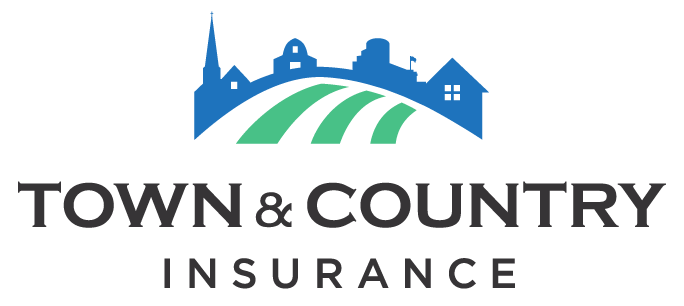Get the Audit Prep Checklist Here!

If you own a business, you're probably going to have an annual insurance audit - it's inevitable. Use our Audit Preparation Checklist & Paperwork Best Practices to navigate your way through the process and prepare for your audit. But first let's address the two big questions regarding insurance premium audits:
1: Why Am I Getting Audited?
The insurance premium you pay is actually an estimated amount, calculated using your payroll and employee classifications. Each year, the insurance company "audits" you to make sure your coverage & premiums align with your risk. They do this by verifying actual sales, payroll and other data. Based on the findings, you may see an increase or decrease (refund) in premium, as well as a change in premium due for the current policy term.
2: What If I Don't Complete The Audit?
If you do not complete & return your insurance audit in a timely manner, your insurance company may assess additional fees, cancel your policy, or both. These fees are known as the ANC (Audit Noncompliance Charge) and, in the state of Minnesota, they can be up to 200% of your policy premium. So if your standard premium is $2,000, they can assess an additional fee of $4,000! Yes - you read that right! Our advice: Complete the audit!
What To Do When You Receive Your Audit Notification
It is important to take action immediately when you receive your insurance audit notification. Chances are, it will take some time for you to compile the data needed to complete and support your audit. If you have trouble or know you will be delayed - contact your agent right away and let them know your status. Too much of a delay may result in noncompliance, and the above-mentioned fee being assessed.
There may be a chance that your insurance carrier will send members of their team to your business to conduct an on-site audit, but this practice is usually reserved for larger businesses or those with more complicated circumstances. Either way, the documentation you will need is similar to that which is listed below.
Gather Your Important Documents
You will need the following documents to help complete your audit paperwork. It is best to gather these documents ahead of time, as many of them are used in separate areas of the audit. Download our easy Audit Preparation Checklist or read below for more information.
- Tax Information - You'll need your legal entity type & TIN, as well as Federal IRS 941 quarterly reports
- State Unemployment Information - State Unemployment ID & quarterly filings; if you do not have them you can log in and print them
- Payroll Records - Employees, SSNs, Hourly Rates, Gross Wages, Overtime hours and wages, work performed ... All separated by class if necessary.
- Sales Records - Gross receipts
- Subcontractor Records - List of subcontractors used, copies of Certs for each, payments made to them, invoices from them, and separation of materials vs. labor paid (if possible.)
- Operational Information - States in which your business performed work, general description of operations & answers to trade-specific questions, as well as explanation for a 20%+ change in sales or payroll (if applicable.)
Complete Your Paperwork
We suggest making a copy or two of your insurance audit paperwork, and completing it in pencil for the first time. No matter how great your data, you'll always have a correction to make. The cleaner & more legible your insurance audit paperwork, the easier it will be for your auditor to read and process it.
Page two of our Audit Preparation Checklist provides additional data and descriptions of each item referenced on most audit paperwork. Otherwise, if you use our checklist as a reference, you should find answers to your most common questions.
It is also important to keep in mind the period for which you are being audited, and the difference as it relates to a calendar year. With this in mind, you may also need two different certs for each subcontractor used, if their policy period is different from your insurance audit period.
Once complete, save a copy of your insurance audit paperwork along with any supporting documents. We suggest making a file specific to your audit each year, so you can look back on previous year's audits for reference. Further, we suggest you scan your completed audit paperwork and have it available electronically.
Submit Your Audit Paperwork
You can fax, mail, or email in your audit. The initial audit paperwork will list how and where to send your audit once completed. Although, it does not hurt to copy your agent on your communication. Additionally, email is (generally) the best method, as 1) you will have record of the paperwork submission date, 2) you can easily attach any supporting documents and 3) you can get it to your auditor in a timely manner.
What Happens Now?
Once your paperwork has been submitted, it may take up to a few months to receive any communication back. Generally, the insurance companies use a third-party audit compliance firm to verify and review your initial audit data. They look to ensure all components of the audit are completed and that you have provided supporting documents. You will likely receive communication from the third-party compliance firm when your audit is in this stage of the process. It is important to return these calls quickly. One simple answer can hold up the entire process.
Once compliance is verified, it will be redirected back to your insurance carrier for further review. From there it can take anywhere from two weeks to two months to finish the process. The carriers then review the audited data and assess any premium charges or refunds due. At that point, you will be sent an audit completion notice with the audit findings.
Additional Owed or Refund Due?
If you do owe additional premium for the audited period, you may also expect a current-term adjustment. For example: The audit finds another $500 in premium is due for the 2018-2019 policy period. You'll owe $500 for that period PLUS an adjustment for the current term. If you do not pay this audit premium, your current policy may be cancelled (but you will still owe the premium.)
Do not ignore this. If your policy cancels, it becomes very challenging for your agent to find a carrier willing to provide coverage, and your rates will likely increase.
On a brighter note, if a refund is due to you, you will also be notified (usually via mail.) Your carrier will either issue a refund check or apply any refunds due to your policy premium.
Additional Resources
Don't forget, download the Audit Preparation Checklist and the Paperwork Best Practices, to help you successfully complete your insurance audit and set yourself up for success next year. Contact your agent if you have specific questions on your policy or if we can help in any way!
April in our Finlayson office, Gabe & Vicki in our Hinckley office, and Jack & Rhonda in our Mora office are glad to help you with your insurance audit questions!
Ready to start your audit?
Get ahead of paperwork...
Get the Paperwork Best Practices Here!



